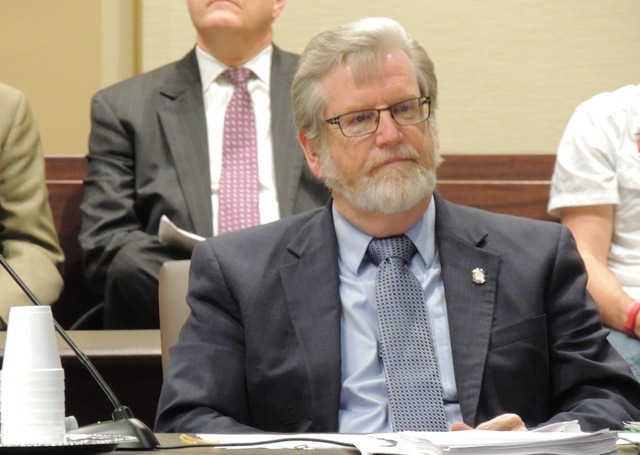Bill repealing second income tax cut trigger heads to full Senate
 Sen Roger Thompson won approval for SB 170 in Senate Appropriations Wednesday.
Sen Roger Thompson won approval for SB 170 in Senate Appropriations Wednesday.
The Senate Appropriations Committee voted Wednesday in favor of a bill that would effectively stop another income tax cut from automatically going into effect based on revenue growth. Sen. Roger Thompson is the author of Senate Bill 170. He’s the chair of the Senate Appropriations Subcommittee on Finance, where the bill easily passed its first hurdle Tuesday.
“Right now we certainly have more outstanding obligations than we have money. With the decline in revenue, it would not take a whole lot to activate that trigger,” said Thompson, R-Okemah. “Let’s just stop the income tax where it is at five percent—maybe future Legislatures can revisit it, but we need to stabilize our revenues.”
Legislation signed into law in 2014 contained a two-part state income tax reduction. The first lowered the state’s top income tax rate from 5.25 to five percent. The rate would have been further reduced to 4.85 percent—the trigger for that reduction would be revenue growth of about $97 million, the cost of implementing the cut. Thompson’s bill kills that trigger.
“Two years ago, we had a $600 million shortfall. Last year, it was $1.3 billion. This year, it’s $878 million. Even if we weren’t facing another shortfall, we still have tremendous financial obligations we have to meet this year. We only provided the Department of Human Services with enough money for 10 months. We still have to make up the other two months. The state’s cost for teachers’ health insurance has increased. And those are just two examples of what we are facing,” Thompson said.
Thompson said the feedback he’s received from constituents has been overwhelmingly in favor of his legislation.
“What I am hearing from Oklahomans is they are very concerned about the current budget situation and how it is impacting core services like education, health and mental health, public safety and transportation,” Thompson said. “They worry the trigger could undo any improvement by wiping out growth revenue. Senate Bill 170 will stop that from happening.”
SB 170 now moves to the full Senate for further consideration.
 Oklahoma Senate
Oklahoma Senate

